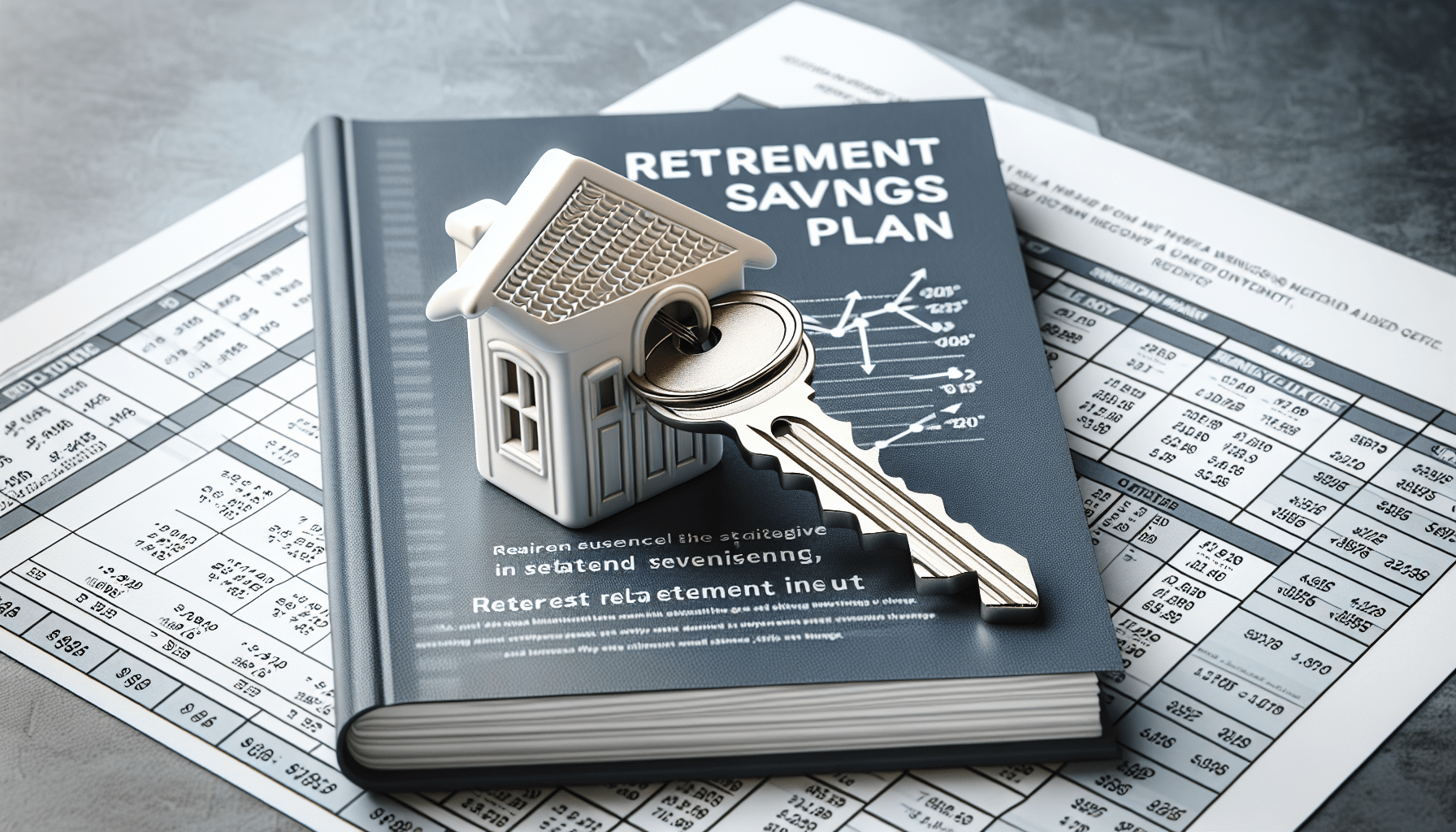Hello there! Have you ever thought about investing in real estate as a way to plan for your retirement? It could be a smart move! Real estate investment can provide a steady income stream, offer potential tax benefits, and act as a hedge against inflation. In this article, we will explore the reasons why real estate investment can be an effective tool for retirement planning and how you can start building your real estate portfolio today. Why consider real estate investment as a form of retirement planning?
Have you ever thought about how you will support yourself financially when you retire? Retirement planning is essential to ensure you have a comfortable and secure future. While there are various investment options available, real estate investment is one that should not be overlooked. In this article, we will explore why real estate investment can be a valuable asset in your retirement planning strategy.
Benefits of Real Estate Investment for Retirement Planning
Real estate investment offers numerous benefits that make it an attractive option for retirement planning. From rental income to property appreciation, there are several ways in which real estate can help you build wealth and secure your financial future. Let’s delve into some of the key benefits of including real estate in your retirement portfolio.
Rental Income
One of the most significant advantages of real estate investment is the potential for rental income. By purchasing rental properties, you can earn passive income each month from the rent paid by tenants. This steady stream of income can help supplement your retirement savings and provide you with financial security in your golden years. Additionally, rental income has the potential to increase over time as you raise rent in line with market rates or invest in property improvements that allow you to charge higher rents.
Property Appreciation
Another key benefit of real estate investment is property appreciation. Real estate tends to increase in value over time, making it a valuable asset for long-term wealth building. By owning property, you can benefit from the potential appreciation of your investment, which can significantly increase your net worth over the years. Property appreciation is especially advantageous for retirement planning, as it provides you with a valuable asset that can be sold or leveraged to fund your retirement lifestyle.
Diversification
Including real estate in your retirement portfolio can also help diversify your investments and reduce risk. Real estate is a tangible asset that is less correlated with the stock market, meaning it can provide a buffer against market fluctuations. By diversifying your investments with real estate, you can spread risk across different asset classes and increase the stability of your retirement savings. This diversification can help protect your wealth and ensure you have a secure financial future.
Tax Benefits
Real estate investment offers several tax advantages that can help you save money and maximize your retirement savings. Rental income is generally taxed at a lower rate than earned income, allowing you to keep more of your rental profits. Additionally, real estate investors can deduct expenses such as mortgage interest, property taxes, maintenance costs, and depreciation, reducing their overall tax liability. These tax benefits can add up over time and increase the return on your real estate investment, making it a valuable asset for retirement planning.

Types of Real Estate Investments
There are various types of real estate investments available, each with its own unique benefits and considerations. When planning for retirement, it’s essential to understand the different options and choose investments that align with your financial goals and risk tolerance. Here are some common types of real estate investments to consider for retirement planning.
Residential Rental Properties
One of the most popular forms of real estate investment is residential rental properties. These properties include single-family homes, multi-family units, condos, and townhouses that are rented out to tenants. Residential rental properties offer steady cash flow from rental income and the potential for property appreciation over time. They can be a reliable source of passive income in retirement and a valuable asset that can be passed down to future generations.
Commercial Real Estate
Commercial real estate includes properties such as office buildings, retail spaces, warehouses, and industrial properties. Investing in commercial real estate can provide higher rental income than residential properties but may also come with a higher level of risk. Commercial real estate investments can be an excellent option for retirement planning if you have the capital and experience to manage these properties effectively. They can offer attractive returns and diversification benefits for your retirement portfolio.
Real Estate Investment Trusts (REITs)
Real Estate Investment Trusts (REITs) are companies that own, operate, or finance income-producing real estate across various sectors. Investing in REITs allows you to access the real estate market without directly owning physical properties. REITs offer diversification, liquidity, and passive income potential for investors seeking exposure to real estate. They can be an excellent option for retirement planning if you prefer a hands-off approach to real estate investing and want to benefit from the income and growth potential of the real estate market.
Real Estate Crowdfunding
Real estate crowdfunding platforms allow investors to pool their resources to invest in properties together. These platforms provide opportunities to invest in real estate projects with lower capital requirements and greater diversification. Real estate crowdfunding can be an attractive option for retirement planning if you are looking for passive income and exposure to the real estate market without the challenges of property management. It offers a convenient way to access real estate investments and leverage the expertise of professional real estate developers and operators.

Strategies for Real Estate Investing in Retirement
Investing in real estate for retirement planning requires careful planning and consideration to maximize the benefits of your investments. There are several strategies you can use to build a successful real estate portfolio that will support you in retirement. By following these strategies, you can take advantage of the opportunities offered by real estate investment and secure your financial future.
Set Clear Goals
Before investing in real estate for retirement planning, it’s essential to set clear financial goals and objectives. Determine how much passive income you need to support your retirement lifestyle and how much you can afford to invest in real estate. Consider your risk tolerance, investment horizon, and financial situation when setting your goals. Having clear objectives will help you make informed decisions and stay on track with your retirement planning strategy.
Choose the Right Properties
When selecting properties for real estate investment, it’s crucial to choose assets that align with your investment goals and risk profile. Consider factors such as location, property type, rental demand, and potential for appreciation when evaluating properties. Look for properties that offer a good balance of rental income and growth potential to maximize your returns. Conduct thorough due diligence and work with a real estate agent or property manager to find properties that meet your criteria and fit your investment strategy.
Manage Your Properties Wisely
Property management is a critical aspect of real estate investing that can significantly impact your returns and overall success. Properly managing your properties will help you attract and retain quality tenants, maintain the value of your assets, and maximize rental income. Consider hiring a professional property management company to handle day-to-day operations, maintenance, and tenant relations. This will allow you to focus on other aspects of your retirement planning while ensuring your properties are well-maintained and profitable.
Monitor Market Trends
Stay informed about real estate market trends and economic conditions that can impact your investments. Monitor local market conditions, rental rates, vacancy rates, and property values to identify opportunities and risks in the market. Be proactive in adjusting your investment strategy based on changing market dynamics and emerging trends. By staying informed and adapting to market conditions, you can make informed decisions that will help you achieve your retirement goals and secure your financial future.
Diversify Your Portfolio
Diversification is key to building a resilient real estate portfolio that can withstand market fluctuations and economic uncertainties. Spread your investments across different property types, locations, and investment vehicles to reduce risk and increase the stability of your portfolio. Diversification can help you minimize losses in a downturn and capture opportunities for growth in various real estate sectors. By diversifying your portfolio, you can build a well-rounded investment strategy that will support your retirement planning goals.

Conclusion
Real estate investment can be a valuable asset in your retirement planning strategy, offering numerous benefits and opportunities for wealth building. By including real estate in your retirement portfolio, you can generate rental income, benefit from property appreciation, diversify your investments, and enjoy tax advantages that will help you secure your financial future. Whether you choose residential rental properties, commercial real estate, REITs, or real estate crowdfunding, real estate can play a crucial role in building a successful retirement plan. By following the strategies outlined in this article and leveraging the benefits of real estate investment, you can create a robust retirement portfolio that will support you in your golden years. Start exploring real estate investment opportunities today and take the first step towards a secure and prosperous retirement.

